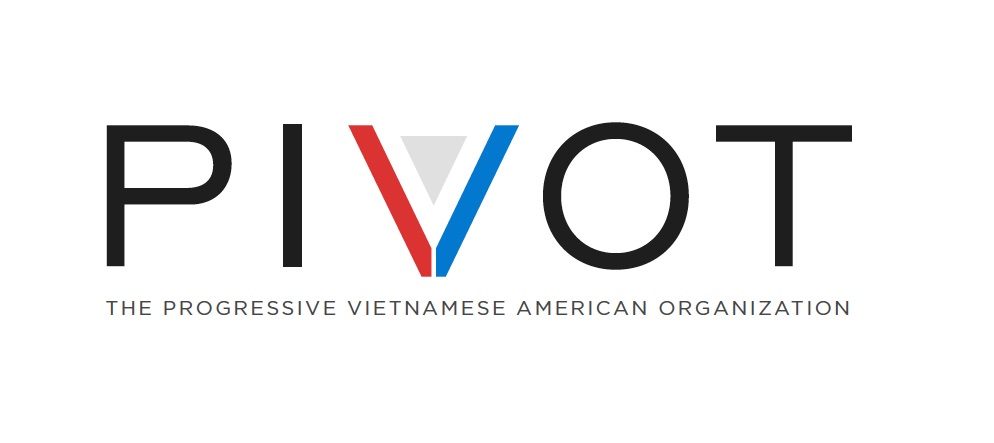HHS PRWORA Notice Fact Sheet
/Note: This call to action focuses on the impact of the U.S. Department of Health and Human Services’ (HHS) decision to rescind the 1998 interpretation of “federal public benefit” in the Personal Responsibility and Work Opportunity Reconciliation Act (PRWORA). However, the Department of Justice (DOJ), Agriculture (USDA), Education (ED), and Labor (DOL) have also issued their own notices that limit immigrant access to benefits and services.
What is the issue at hand?
Five federal agencies, including the U.S. Department of Health and Human Services (HHS), want to further limit access to federally-funded health and social service programs based on people’s immigration status.
How can this happen?
HHS reinterpreted who was eligible for “federal public benefit” in the Personal Responsibility and Work Opportunity Reconciliation Act (PRWORA), defining “federal public benefits” as available only to a specific group of qualified immigrants. The recently passed federal budget bill further restricts immigrants’ eligibility for certain programs.
What is PIVOT’s stance?
PIVOT opposes the U.S. Department of Health and Human Services’ (HHS) decision to rescind the 1998 interpretation of “federal public benefit” in the Personal Responsibility and Work Opportunity Reconciliation Act (PRWORA).
Who is affected?
Certain groups of lawfully present immigrants, namely those with:
Special Immigrant Juvenile status, Temporary Protected Status, asylum or U visa applicants, people with a nonimmigrant visa, people granted Deferred Enforced Departure or Deferred Action including Deferred Action for Childhood Arrival (DACA) recipients
Undocumented immigrants
U.S. citizens in immigrant families
Ex: children whose parents don’t qualify for these benefits and services
This affects the following groups that provide necessary health services:
State and local agencies.
Nonprofits
Under the False Claims Act, nonprofit providers are responsible for enforcing new immigration restrictions. They may face consequences if they do not.
Yet, confusingly enough, PRWORA also states that nonprofits aren’t required to verify immigration status of participants. These two guidance measures seem to contradict each other and there is still no clarification.
Confusion among nonprofit providers add another barrier for people seeking necessary health services.
Where will this have an impact?
More programs now fall under those limited to “qualified immigrants,” including:
Early childhood learning under Head Start
Community Health Centers
Family planning services under Title X
Child welfare prevention and kinship guardian assistance programs under Title IV-E
Substance use prevention, treatment and recovery services
Physical health services
Mental health services
Parenting classes
Critical health care that allows older immigrants to age with dignity and support younger members of their families
Certified community behavioral health clinics
Projects for assistance in transition from homelessness grant program
Substance use prevention, treatment, and recovery services block grant
And more
Other programs may be added to the list in the future.
Where will this NOT have an effect?
Programs already restricted to qualified immigrants in PRWORA:
ex: Medicaid, the Children’s Health Insurance Program (CHIP), the Supplemental Nutrition Assistance Program (SNAP), Supplemental Security Income (SSI), and Temporary Assistance for Needy Families (TANF)
Federal public benefits available to all:
ex: treating emergency medical conditions; short-term non-cash disaster relief; public health programs for immunization, testing, and treatment of communicable diseases; programs that deliver in-kind services, are not means-tested, and are necessary to protect life or safety, as specified by the Attorney General.
Nonprofits administering federal, state, or local benefit programs not required to verify immigration statuses of participants.
What is the impact of this?
It has been historically proven that confusion and fear will deter people from seeking necessary health services and benefits.
Ex: In the late 1990s after enacting PRWORA, there were substantial drops in program participation by refugees and citizen children in mixed immigration status families even though they weren’t subject to eligibility changes.
Ex: Recent surveys have found members of all-citizen immigrant families and families with legal permanent residents (LPRs or “green card” holders) continue to avoid benefits where they are eligible because of immigration concerns.
These programs benefit society as a whole from important preventative and primary health care services. These services help support our health care system from the strain of uncompensated care, and protect our nation’s health and security.
Ex: Child welfare programs reduce child abuse and neglect, and save costs of government foster care.
Ex: Substance use disorder and mental health treatment services help people fully participate in society.
Inadequate guidance for health providers and systems to adapt place the burden on private entities and state and local agencies.
When will this take effect?
HHS implemented this as of July 14, 2025 in all but 21 states where they are currently being sued.
What is happening now?
21 states have sued the Trump Administration.
One of the stipulations of the lawsuit is that HHS would not enforce this PRWORA notice until September 10th in these states. In other words, the notice does not currently apply in the following states: Arizona, California, Colorado, Connecticut, District of Columbia, Hawaii, Illinois, Maine, Michigan, Massachusetts, Maryland, Minnesota, Nevada, New Jersey, New Mexico, New York, Oregon, Rhode Island, Vermont, Wisconsin, and Washington.
No agency should deny help to people unnecessarily without clearly being directed to do so. Organizations may be concerned, but regulations and funding requirements for individual programs have not changed.
Nonprofits in particular cannot be required to verify a person’s immigration status for program eligibility under this law.
Some programs (ex: community health centers) are legally required to serve all people.
—————————
This fact sheet is largely based on National Immigrant Law Center (NILC) analysis.
Read more here:
Learn more on how to submit a comment to the HHS by accessing our comment template.
